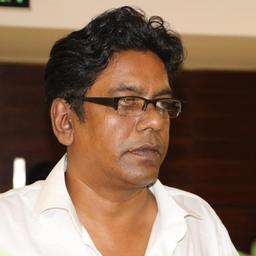How significant is the parliament in the majority of ruling party?

Parliamentary democracy, a system of governance cherished for its representation and accountability, often undergoes a unique journey in developing countries. From Africa to Asia, Latin America to parts of Eastern Europe, the path to democratic stability and functionality is marked by both hurdles and milestones. Bangladesh is no exception.
In Bangladesh, parliamentary democracy has emerged from the rubbles of the liberation war and later from autocratic rules of military rulers in tandem after the assassination of Bangabondhu Sheikh Mujibur Rahman, the father of the nation. Bangladesh started its journey with Parliamentary System of Government, then switched over to Presidential System and in 1991 reverted back to Parliamentary system. The transition towards this system signified a pivotal moment in the nation's history. In December 1990, military President of Bangladesh Hossain Mohammad Ershad, who was in office since 1983, has resigned after months of anti-government campaign by opposition parties. He was succeeded by Justice Shahabuddin Ahmed, who headed a neutral caretaker administration, pending general elections, which were set to execute a parliamentary election. Since then, parliamentary democracy has been running in the country. Parliament consists of three hundred members elected in accordance with law from single-member territorial constituencies. Besides this there was a provision for fifty seats reserved exclusively for women members.
12th parliamentary election took place in Bangladesh on 7 January 2024 in accordance with the current constitutional requirement, stating that elections must take place within the 90-day period before the expiration of the current term of the Jatiya Sangsad on 29 January 2024. The Awami League won the 2018 general elections and formed the government. The first session of the parliament sat on 30 January 2019. The BNP, which took part in 2018 election, boycotted this election of 2024. The Awami League, led by Sheikh Hasina, won the election for the fourth consecutive time with around 40% of the eligible voters voting, according to the Election Commission.
In the current parliament, Awami League holds 223 seats out of 299 seats as voting in Naogaon-2 was postponed following the death of a candidate. Subsequently, 62 independent parliament members have been elected. Among them, 58 are supporters of the Awami League. Efforts are also underway from the Awami League's side to nominate candidates for the reserved seats allocated to independent parliament members, according to party sources. The Jatiya Party secured 11 seats, the Jatiya Samajtantrik Dal and the Workers Party got one seat each. The Kalyan Party, once allied with the BNP, also won a seat. The Jatiya Party has once again emerged as the official opposition. Its Chairman GM Quader has become the opposition leader replacing Raushan Ershad, the widow of Ershad. There was a widespread rumor that independent-minded MPs could form an opposition alliance. However, it did not happen, and why it didn't happen remains clear to everyone. Almost all independent MPs are members of the ruling party and they serve on various committees. Noticeably, article 70 of the Constitution of Bangladesh is a clause restricting voting freedom in the Parliament. The article has the effect of preventing free votes and crossing the floor by Members of Parliament. If a MP votes against his party, he or she automatically loses his seat. For these complications, parliamentarians did not try to make it more complicated. End of the day, re-elected Speaker of the House declared Jatya party as its opposition.
In a parliamentary democracy, the opposition party in parliament plays a crucial role in upholding democracy and ensuring accountability. Serving as a check on the ruling party, it voices dissent, scrutinizes government policies, and represents diverse perspectives. Through debates, discussions, and critiques, the opposition fosters healthy democratic discourse, offering alternative solutions and advocating for the interests of citizens. Its presence is integral for balance, preventing the concentration of power and promoting transparency. By holding the government accountable for its actions and decisions, the opposition contributes to the functioning of a vibrant democratic system, ultimately safeguarding the rights and freedoms of the people it represents. Now a question is looming nationwide: will Jatya party be able to perform their basic duties as they were blessed by the ruling Awami League to secure just 11 seats? After the maiden session of parliament, opposition leader GM Quader said, “Our intention was that both sides would be equal… Then there would be an equal fight between them. There will be arguments and debates focusing on their own opinions. Parliament will decide in favour of the people. This is the purpose of the parliament.... If the government party is called red, then this parliament is completely red. The green is just a splash. It will be difficult to find the whole nation in this parliament. How far the present parliament will be able to represent the nation is a matter of concern (source: The Business Standard).
The journey towards parliamentary democracy in Bangladesh is fraught with challenges, yet marked by resilience, determination, and progress. To further advance democratic consolidation, policymakers, civil society actors, and international partners must prioritize.
Enhancing transparency, combating corruption, and promoting accountability mechanisms are imperative for building public trust in parliamentary democracy and ensuring the equitable distribution of resources and opportunities.
In conclusion, parliamentary democracy in developing countries embodies both the aspirations and complexities of democratic governance. While the path towards democratic consolidation may be arduous, the resilience, ingenuity, and collective efforts of nations and their citizens offer hope for a future anchored in democratic ideals and inclusive governance.
Yet, Bangabandhu once said, "If anyone speaks justly, we will heed his words.” The incumbent government has to follow this suggestion. Otherwise it would be a meaningless parliament. Now we have to wait and see how the ruling party acts with its brutal majority.
Author: fiction writer and journalist


Leave A Comment
You need login first to leave a comment